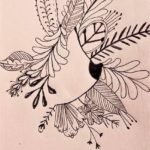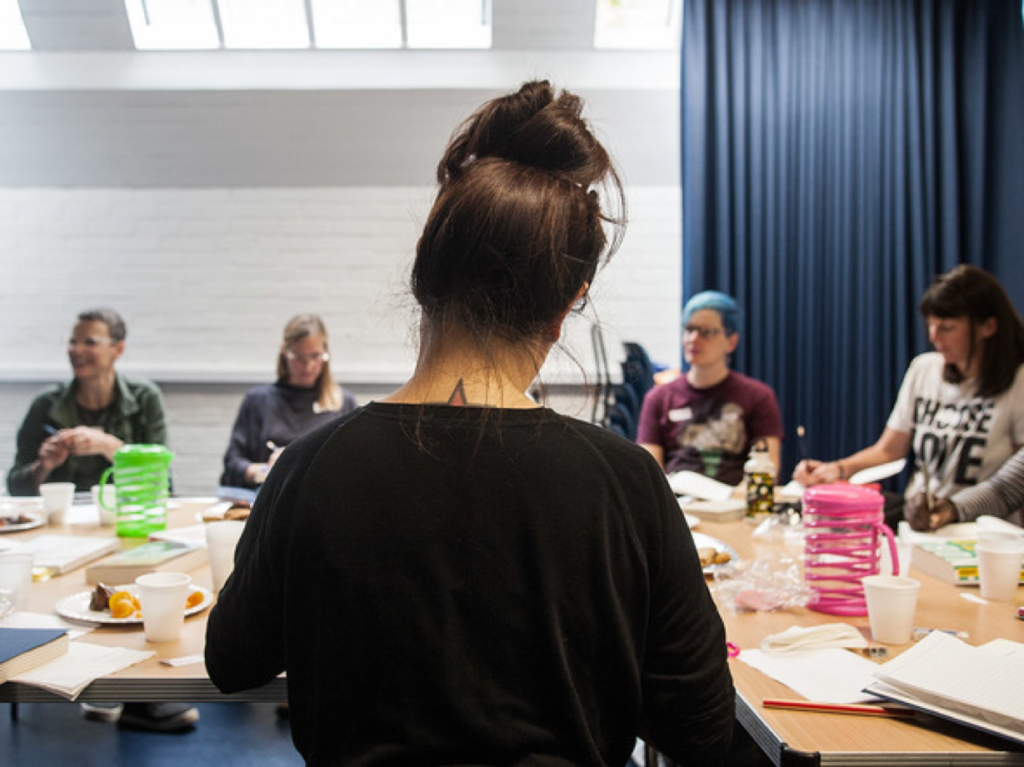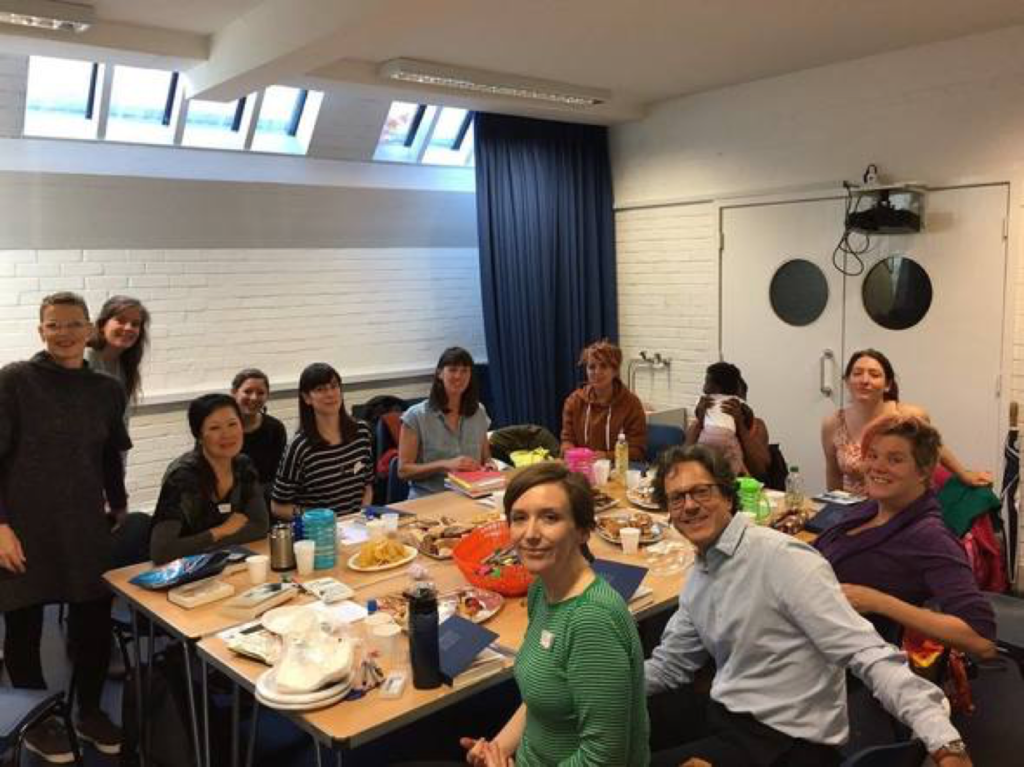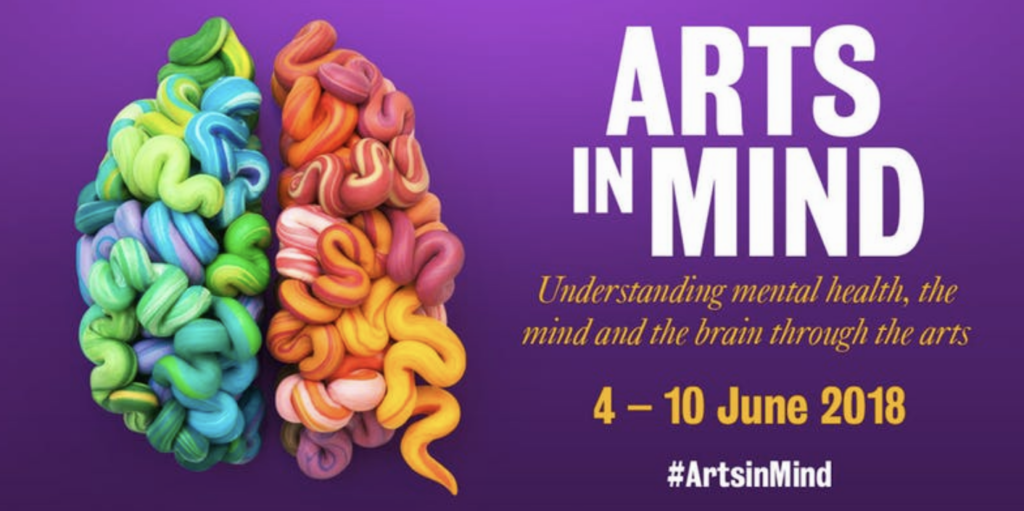
This is Maternal Mental Health Matters Awareness Week, dedicated to raising awareness about mental health problems in pregnancy and in the postpartum. Thus, it is the perfect time to tell Hannah’s and Laura’s stories.
Hannah experienced mental health problems after the birth of her second child, and she was now pregnant with her third. Laura, an artist and midwife, had decided to use art to help women like Hannah.
This Awareness Week is a global initiative, and thus offers an opportunity to reflect on how society can protect mothers, and their babies, from mental health difficulties.
Social support (information, advice, practical help and emotional reassurance) from partners, family, friends and the community is one of the strongest factors in protecting women from depression and anxiety, in both pregnancy and the postpartum.
It is not surprising that many traditional cultures advocate a ‘protective’ period around birth and for the first few weeks after delivery, during which the mothers and babies are confined to their homes, discouraged from engaging in household chores or work activities, and surrounded by women in the extended family who help by preparing food and assisting with postnatalcare.
While of course some of these restrictions can have their own negative consequences, they are at least a testimony to a time when motherhood was recognised as an experience that involves a large network of relatives, friends and local community.
Laura had a simple idea: to transform motherhood back into a collective, sharing experience, through a series of free creative workshops for pregnant women with a history of mental health problems. She contacted me to help her organise this through the Cultural Institute at King’s College London. She called it Maternal Journal, because it focussed on exploring the history and practice of journaling.
In the meantime, Hannah was going through her antenatal care, and finding that the preparation did not include much discussion of mental health.
She had one extremely dissatisfactory counselling session that was difficult to organise, and antenatal courses that did not provide the space or support to explore her concerns. Her experience was not so different from that of Lynn, on whom I have written before, who had previously developed severe postnatal depression, and who also participated in the Maternal Journal.
When Hannah stumbled across the chance to participate in the Maternal Journal, she felt, in her own words, like a:
door had been opened and the light flooded in.
Hannah felt relieved that the focus of Maternal Journal was not on the babies but rather on the women mothering, as part of a long trajectory of collective female experiences, identities and voices. The group was mixed in terms of first-, second-, and third-time mothers: some had already given birth and the others were at different stages of pregnancy, making the sessions rich with a pool of experiences to share, reflect on, and gather support from.

Participants at one of the Maternal Journal sessions. Photo: Martim Ramos.
Hannah’s experience was further enhanced by seeing how the invited female artists, such as Holly McNish, Kate Evans, Rebecca Fortnum and Fran Burden, could channel their experience into acerbic comic creations, bringing relief and levity to a mother’s experience without undermining or downplaying it.
The artists’ contributions encouraged all the participants to experiment with their own creative skills, and to value their own voice and experiences. Furthermore, Hannah felt strengthened by this time to reflect, with other pregnant women, on the wider politics and history of motherhood, feminism and creativity.
As we are increasingly aware of the mental health strain of motherhood, Hannah’s and Laura’s stories tell us that we need not only to raise awareness of this important issue, but also to find innovative and creative tools to support individual resilience and coping strategies.

All together during a Maternal Journal session: Laura (first from the left), Hannah (sixth from the left) and Carmine (the only man) sitting on the left of ‘Cartoon Kate’ Evans. Photo: Martim Ramos.
And, if the most important ingredient in Hannah’s empowering, therapeutic experience was her sharing and participation in a wider network, then what we really need to do is to recognise motherhood (starting from pregnancy and the postpartum) not just as the responsibility of the individual mother, but of all of us, of the whole society: with policies that reflect this vision and improve access to antenatal care, maternity pay and leave, and early years support.
Recently Hannah had her 8-week postnatal check-up and was given the widely-used Edinburgh Postnatal Depression Scale to complete. While reading its questions (has she been able to laugh and see the funny side of things? Anxious or worried for no good reason? So unhappy that has been crying?) she felt more equipped to maintain better mental health herself, through participating in a project that introduced her to the benefits of creative journaling, as well as a widened network of inspiring, supportive women.
Let’s find a way to equip more women like Hannah.
Free Maternal Journal events
The following free events take place at the Arts in Mind Festival in London on 6th June 2018
- Arts in Mind Festival, 4th – 10th June 2018
- Maternal Journal workshop – ‘Concrete Poetry’ 6th June, 11.30am
- Maternal Journal workshop – ‘Automatic drawing’ 6th June, 3pm
- Maternal Journal presentation event, 6th June, 6pm – 8pm
Photo credits
- Maternal journal drawing by participant Amy Dignam
- Maternal Journal photos by Martim Ramos


[…] of the importance of perinatal mental health is increasing (the Mental Elf recently published a special blog for the second UK Maternal Mental Health Matters Awareness […]